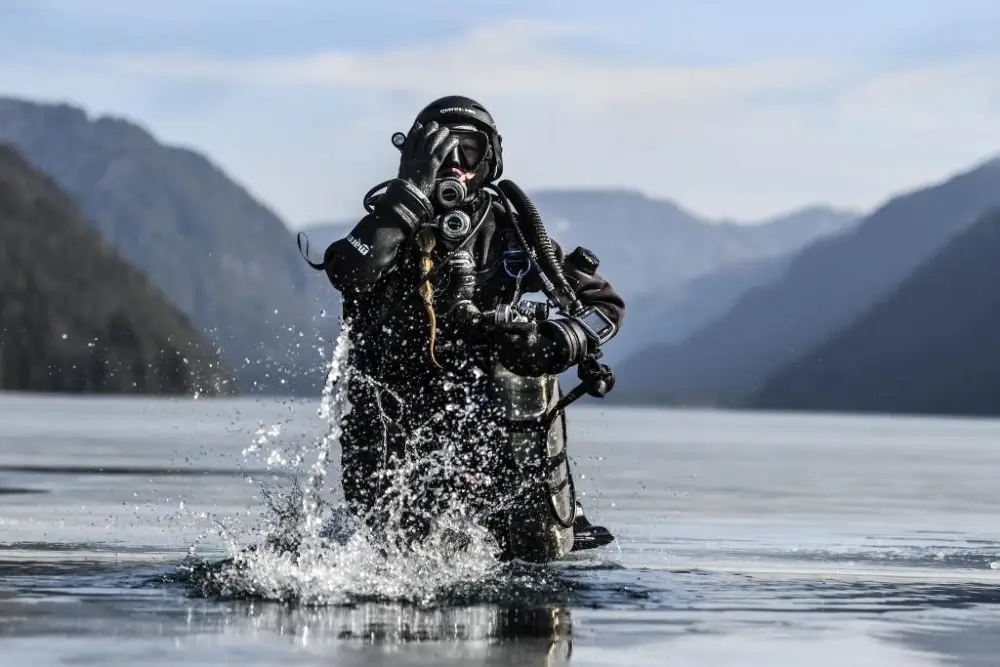When it comes to scuba diving, safety should always be the top priority. Knowing when to abort a dive is key to preventing accidents and ensuring an enjoyable experience.
Understanding when to abort a dive is essential for every diver, regardless of their experience level. It refers to the decision to cancel or cut short a dive due to safety concerns. It may be necessary to abort a dive if there is a risk of injury, equipment failure, adverse weather conditions, or any other factor that compromises the safety of the divers.
In this guide, we will explore the various factors that may require a dive to be aborted, including signs and red flags, weather conditions, equipment malfunctions, potential medical issues, and the importance of developing a proper dive plan.

By having a clear understanding of when to abort a dive, divers can prevent accidents, reduce the likelihood of decompression sickness, and ensure a positive diving experience.
Signs and Red Flags to Watch Out for During a Dive
During a dive, it is important to be aware of any signs and red flags that indicate the need to abort. Here are some common signs to watch out for:
- Difficulty breathing or shortness of breath
- Unusual or sudden changes in water temperature
- Strong currents or unpredictable underwater conditions
- Visibility issues, such as poor visibility or sudden decrease in visibility
- Equipment malfunctions or failures
- Feeling lightheaded, dizzy, or disoriented
If any of these signs are observed during a dive, it is important to communicate with your dive buddy and consider ending the dive. Ignoring these warning signs can lead to serious accidents or injuries.
Weather and Environmental Conditions That May Require Dive Termination
Weather and environmental conditions play a significant role in determining whether a dive should be stoped.
Here are some weather and environmental factors that may require cancelation:
- Strong winds
- Heavy rain or thunderstorms
- Low visibility due to fog or heavy currents
- Significant changes in water temperature
- Presence of marine life known for aggressive behavior
- Poor water quality or pollution
It is important to monitor weather forecasts and take into account the specific environmental conditions of the dive site. If any of these factors pose a risk to diver safety, it is best to abort the dive and wait for more favorable conditions.
Equipment Malfunctions and How They Influence Dive Decisions
Equipment malfunctions can occur during a dive and significantly impact the safety of the divers. Here are some common equipment malfunctions that may require a dive to be stoped:
- Regulator failure
- BCD (Buoyancy Control Device) malfunction
- Dive computer or depth gauge malfunction
- Snorkel or mask issues
- Tank valve problems
- Fins or booties malfunction
Divers should regularly maintain and inspect their equipment to minimize the risk of malfunctions. However, even with proper maintenance, equipment failures can happen.
If any equipment malfunction occurs during a dive, it is important to abort the dive and address the issue before having another go.
Preventing and Dealing with Potential Medical Issues Underwater
While scuba diving, it is essential to be aware of potential medical issues that may arise and know how to handle them.
Here are some common medical issues that may require canceling a dive:
- Ear barotrauma or equalization problems
- Respiratory issues, such as asthma or difficulty breathing
- Signs of decompression sickness
- Severe seasickness or motion sickness
- Allergic reactions to marine life or equipment
- Significant pain or discomfort
It is important for divers to have a thorough understanding of their own health and any potential medical conditions that may affect their ability to dive safely. If any of these medical issues arise during a dive, it is essential to abort the dive and seek medical attention if necessary.
Developing a Proper Dive Plan
Developing a proper dive plan is essential for ensuring safety and allowing for dive cancelations when needed. Here are some key considerations for developing a dive plan:
- Thoroughly research the dive site and its specific conditions
- Check weather forecasts and monitor environmental conditions
- Ensure all equipment is in proper working condition
- Establish communication protocols with dive buddies
- Set depth and time limits based on personal experience and certification
- Identify potential exit points or emergency procedures
By developing a comprehensive dive plan, divers can minimize the risk of accidents and make informed decisions about when to cancel a dive.
Frequently Asked Questions
What should I do if I encounter strong currents during a dive?
If you encounter strong currents during a dive, it is important to abort the dive. Attempting to swim against strong currents can lead to exhaustion and increase the risk of accidents. Signal your dive buddy and follow the appropriate procedures for exiting the water safely.
Can poor visibility be a reason to abort a dive?
Yes, poor visibility can be a valid reason to abort a dive. Limited visibility can make it difficult to navigate underwater, increasing the risk of getting lost or separated from your dive buddy. If visibility is significantly compromised, it is best to suspend the dive and wait for better conditions.
What should I do if I experience difficulty equalizing my ears?
If you experience difficulty equalizing your ears during a dive, you should abort it. Continuing to descend without proper equalization can result in ear barotrauma, which can be extremely painful and may require medical attention. Ascend slowly, equalize your ears, and consider seeking advice from a diving professional before attempting another dive.
Conclusion
When it comes to deciding when to abort a dive, it is always better to err on the side of caution. Consulting with experienced divers, dive instructors, or diving professionals can provide valuable insights and guidance. Your safety and well-being should always be the top priority when underwater.
